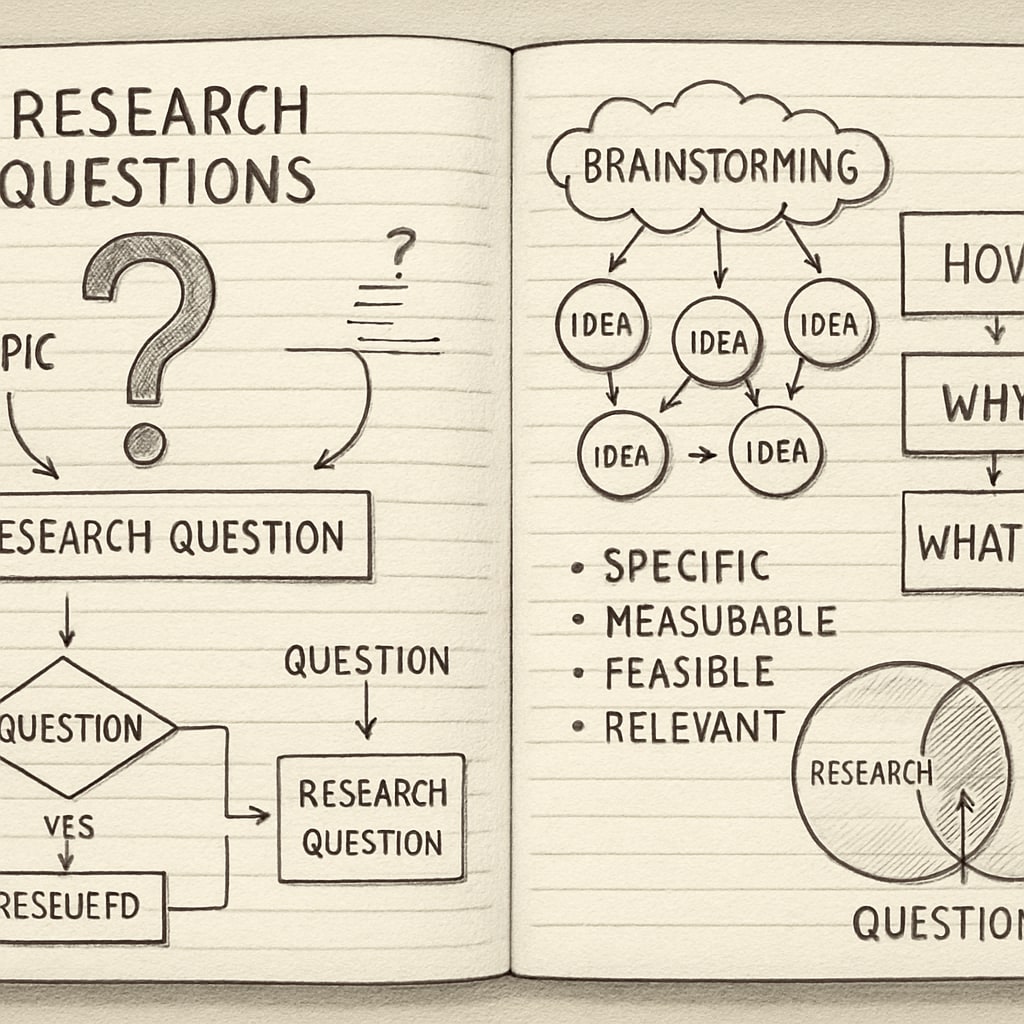Formulating effective research questions is a critical step for teachers, students, and education professionals engaged in K-12 research. In this article, we will explore methods and strategies for crafting high-quality research questions, ensuring your educational inquiry is focused, actionable, and impactful.
Understanding the Importance of Research Questions
At the heart of any academic study lies the research question. It dictates the scope, direction, and focus of your investigation. A well-defined research question serves as a roadmap, guiding your methodology, data collection, and analysis. In K-12 education, where research often aims to improve teaching practices or student outcomes, crafting precise questions is especially vital.
For example, instead of asking, “How do students learn math?” a refined question like, “What teaching strategies improve algebra comprehension for middle school students?” provides clarity and specificity. This precision not only enhances the quality of your research but also ensures its practical relevance for educators.

Steps to Craft Effective Research Questions
Developing strong research questions involves several systematic steps. Below, we outline a practical framework tailored to K-12 education research:
- Identify the Problem: Begin by pinpointing the challenge or area of interest. Engage with educators, students, or existing literature to understand pressing issues in K-12 education.
- Conduct Preliminary Research: Explore prior studies to identify gaps or areas needing further exploration. Use resources such as Wikipedia on Educational Research for foundational insights.
- Define Your Focus: Narrow your topic to a specific grade, subject, or demographic. For instance, rather than studying “student engagement,” focus on “student engagement in STEM subjects for high school girls.”
- Draft Questions: Formulate open-ended and clear questions. Ensure they are neither too broad nor overly restrictive.
- Refine and Test: Review your questions with peers, mentors, or stakeholders. Adjust for clarity, relevance, and feasibility.
By following these steps, researchers can ensure their questions are both meaningful and manageable within the constraints of their study.
Common Pitfalls and How to Avoid Them
While developing research questions, it’s essential to steer clear of common mistakes. Here are some pitfalls to watch out for:
- Overgeneralization: Questions that are too broad can lead to unmanageable studies. Be specific about your focus.
- Bias: Avoid leading questions that presuppose outcomes, such as “Why is technology always beneficial in classrooms?”
- Unrealistic Scope: Ensure your question is feasible within your time frame and resources.
- Neglecting Relevance: Consider whether your question addresses a genuine need in the K-12 context.
For additional guidance, tools like Britannica on Educational Psychology can provide valuable context and insights.

Finalizing and Using Your Research Questions
Once your research questions are finalized, they should guide every aspect of your study. From selecting data collection methods to analyzing results, your questions act as a constant reference point. To ensure success:
- Align Methods with Questions: Choose tools and techniques that directly address your inquiry.
- Regularly Revisit: Reflect on your questions throughout the research process to maintain focus.
- Communicate Clearly: When sharing findings, explicitly link your conclusions to your initial questions.
By doing so, you’ll ensure your study remains coherent and impactful, contributing meaningful insights to K-12 education.
In conclusion, the ability to craft precise research questions is a cornerstone of effective educational research. By following systematic methods, avoiding common pitfalls, and aligning your study with well-defined questions, you can drive meaningful improvements in K-12 education.


